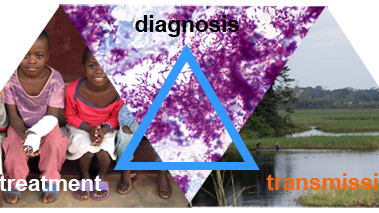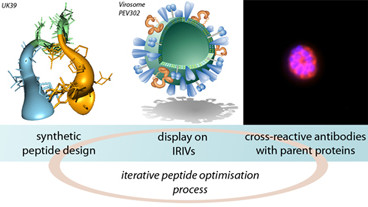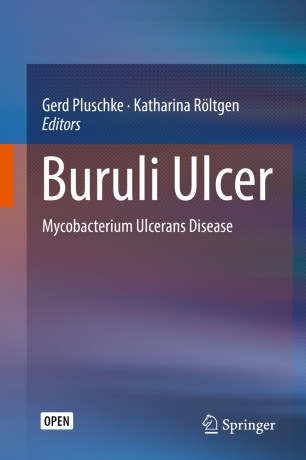Group | Molecularimmunology

The Molecularimmunology group develops and evaluates new technologies for the design and immunological testing of candidate vaccines, analysis of the genetic and antigenic diversity of pathogens and the contribution of the immune system to the efficacy of therapeutic interventions. This research focuses primarily on three infectious diseases: malaria due to Plasmodium falciparum, bacterial meningitis caused by Neisseria meningitides and Streptococcus pneumoniae, and Mycobacterium ulcerans disease (Buruli ulcer).

Gerd Pluschke
Professor, PhD
Group Leader
+41612848235
gerd.pluschke@swisstph.ch
Key Projects

Buruli Ulcer
Mycobacterium ulcerans Infection (Buruli ulcer): Towards Improving Control, Diagnosis and Therapy
After tuberculosis and leprosy, Buruli ulcer, caused by M. ulcerans, is the third most common mycobacterial disease, and Western Africa is the world region most affected by this chronic necrotising disease of the skin and the subcutaneous tissue. M. ulcerans is unique among mycobacterial pathogens in that it is mainly extracellular and produces a plasmid-encoded toxin with a polyketide-derived macrolide structure, named mycolactone.
Symptoms and Treatment
Mycolactone is believed to play a central role in determining the extracellular localization of the bacteria and modulation of immunological responses to M. ulcerans. Clinical lesions usually start as painless nodules and if left untreated lead to massive destruction of skin and sometimes bone. While surgery has traditionally been the only recommended treatment for BU, in 2004 WHO published provisional guidelines recommending treatment with a combination of rifampicin and streptomycin for 8 weeks.
Our Research
We developed a broad research portfolio comprising clinical, field and laboratory studies. The goals of our research are to improve understanding of the pathogenesis, immunology and transmission of Buruli ulcer, develop methods for early diagnosis, and investigate prospects for improving therapy and vaccine development.

Malaria
P. falciparum: Developing a Synthetic Subunit Candidate Vaccine
Malaria is one of the most serious infectious diseases of humans. New approaches to combat malaria are urgently needed, and a vaccine is predicted to have the greatest impact in addition to being the most cost-effective control measure.
We are developing synthetic peptide structures that induce cross-reactive antibodies against the parent malaria proteins and by coupling them to the surface of immunopotentiating reconstituted influenza virosomes (IRIVs). In addition we are evaluating the use of so fare uncharacterized predicted proteins of Plasmodium falciparum as potential new candidate vaccine antigens.
Vaccine Development
One approach is to design a subunit vaccine that incorporates several malaria protein antigens for which there is evidence of protective immunity from epidemiological data or experimental animal challenge models. Development of such subunit vaccines is critically dependent on the availability of an antigen delivery system to drive suitable protein antigen-specific immune responses in humans. Vaccine formulations have to be highly effective, human-compatible and safe. Production of synthetic or recombinant proteins that stably mimic the native structure of the corresponding malaria antigens to induce effective humoral immune responses is a further major challenge.
Our research
We are addressing both problems by developing synthetic peptide structures that induce cross-reactive antibodies against the parent malaria proteins and by coupling them to the surface of immunopotentiating reconstituted influenza virosomes (IRIVs). In addition we are evaluating the use of so fare uncharacterized predicted proteins of Plasmodium falciparum as potential new candidate vaccine antigens.

Meningitis
Meningococcal Meningitis: Clonal Waves of Colonisation and Disease in the Meningitis Belt of Sub-Saharan Africa
Bacterial meningitis is a medical emergency and remains one of the major health problems in Sub-Saharan Africa. The three most important agents are Neisseria meningitidis, Streptococcus pneumoniae, and Haemophilus influenzae. All three pathogens are common colonizers of the human nasopharynx, invasive disease is usually a rare event.
The bacterial meningitis project involves longitudinal studies of the molecular epidemiology of comparatively carriage and disease of N. meningitidis and S. pneumoniae. The studies are being carried out in Northern Ghana and Burkina Faso and aim to enhance the understanding of the dynamics of meningitis epidemics in the African Meningitis Belt. The results provide important background information for the evaluation and introduction of new conjugate vaccines against meningococcal and pneumococcal infections in Africa.
Latest Publications
All PublicationsMäser P et al. Key contributions by the Swiss Tropical and Public Health Institute towards new and better drugs for tropical diseases. Chimia (Aarau). 2023;77(9):593-606. DOI: 10.2533/chimia.2023.593
Leuenberger A et al. Perceived water-related risk factors of Buruli ulcer in two villages of south-central Côte d’Ivoire. PLoS Negl Trop Dis. 2022;16(12):e0010927. DOI: 10.1371/journal.pntd.0010927
Scherr N et al. Targeting the Mycobacterium ulcerans cytochrome bc1:aa3 for the treatment of Buruli ulcer. Nat Commun. 2018;9:5370. DOI: 10.1038/s41467-018-07804-8
Bieri R et al. The macrolide toxin mycolactone promotes bim-dependent apoptosis in Buruli ulcer through inhibition of mTOR. ACS Chem Biol. 2017;12(5):1297-1307. DOI: 10.1021/acschembio.7b00053
N'krumah R.T.A.S et al. Characteristics and epidemiological profile of Buruli ulcer in the district of Tiassalé, south Côte d’Ivoire. Acta Trop. 2017;175:138-144. DOI: 10.1016/j.actatropica.2016.12.023
 Eilidh Carrington
Eilidh Carrington
 Julia Hauser
Julia Hauser
 Gerd Pluschke
Gerd Pluschke
 Louisa Warryn
Louisa Warryn

